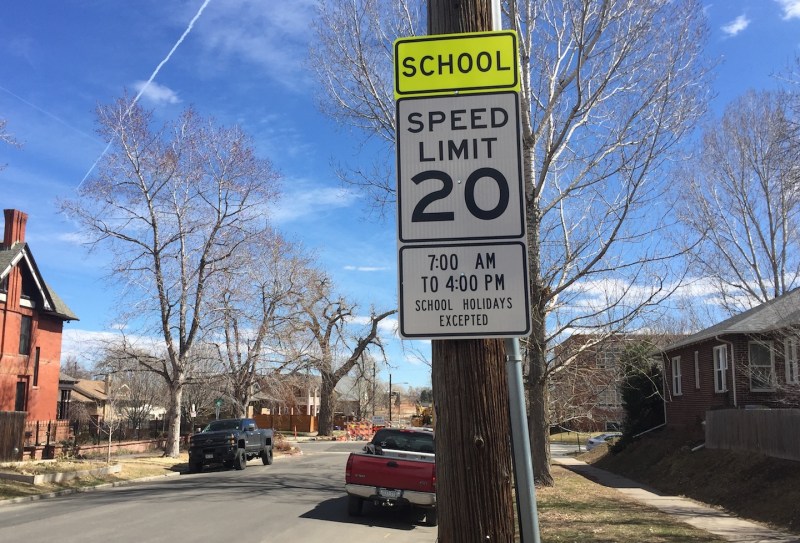It’s About to Get Easier for Colorado Cities to Set Safer Speed Limits
Unfortunately for Denverites, the bill omits many segments of deadly state highways like Federal Boulevard and Colfax Avenue.

If cities in Colorado want to lower the speed limit on their streets, they first have to justify the change using the “85th percentile rule” — an old traffic engineering practice that accommodates dangerously high travel speeds instead of seeking to create safer street conditions.
With the passage of House Bill 1191, which now awaits Governor Hickenlooper’s signature, that’s about to change — at least for residential streets.
The 85th percentile rule holds that speed limits should be set at a rate that 85 percent of drivers obey. The upshot is that even when people want to lower the speed limit where they live, they can’t — because people are already driving fast.
Say you want to reduce the speed limit on your street to 25 mph. Under the 85th percentile rule, you have to show that 85 percent of drivers are already traveling at that speed or slower before lowering the limit.
HB 1191 frees cities and towns from the 85th percentile rule. Instead, they can change speed limits because they believe it would reduce crashes or make walking and biking safer.
“It’s clarifying the law so that county commissioners can have discretion to use this other criteria in order to be able to make adjustments to speed to protect public safety,” said Senator John Kefalas, who co-sponsored the bill with Senator Beth Martinez Humenik and Representative Faith Winter.
Under the new rules, cities and towns still have to conduct a traffic study when considering a speed limit change, but that would no longer be the sole binding factor. The law is “permissive,” Kefalas said, meaning it allows cities to consider different criteria without requiring them to do so.
Unfortunately for Denverites, the bill passed with a late amendment, to appease some Republicans, that omits many segments of deadly state highways like Federal Boulevard and Colfax Avenue. The law only applies to “residential neighborhoods.” Legally, that means blocks where 51 percent of the buildings are residential dwellings and the speed limit is 35 mph or lower.
Martinez Humenik, a Republican sponsor, said some of her colleagues did not want the law to be used to slow down freight traffic on state highways “that went by their community, not through it.”
Kefalas said he’d consider a more substantive bill next year if constituents came forward and said HB 1191 isn’t enough.


